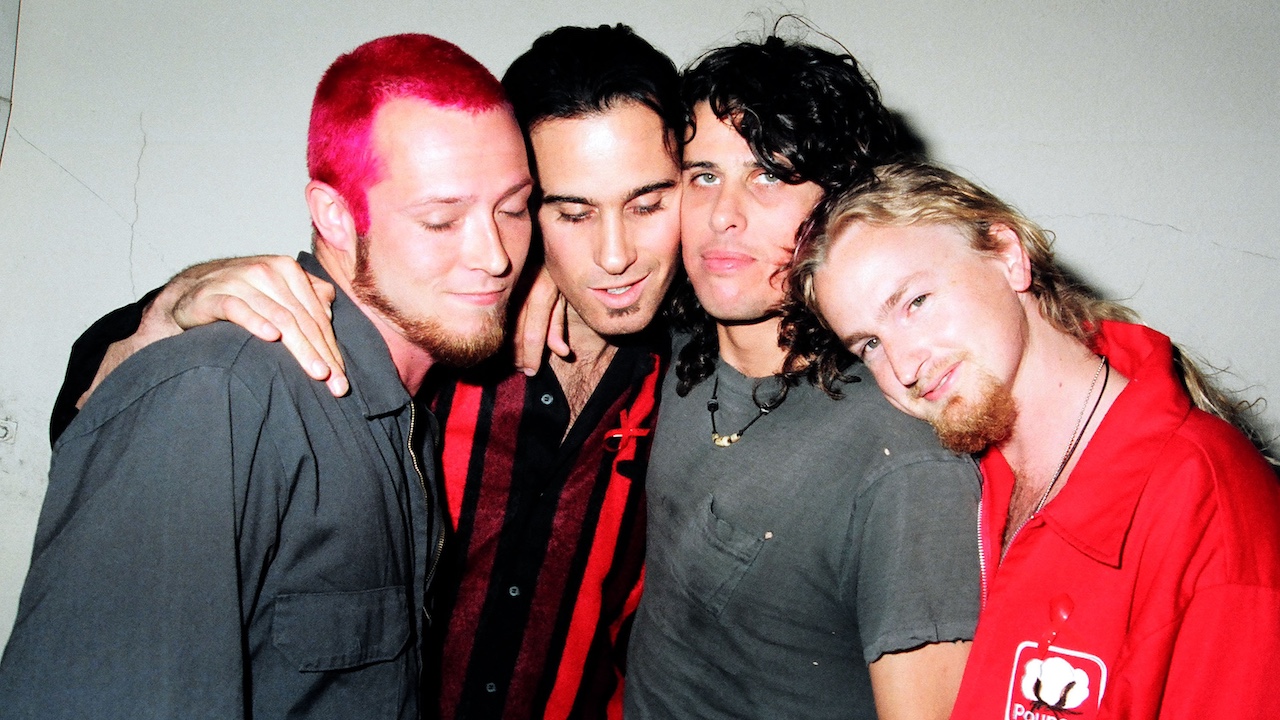"Above all, it was detested by the critics": A beginner’s guide to yacht rock in five essential albums
Yacht rock, soft rock – call it what you will. Here are five brilliant albums that define the genre in all its bearded, Hawaiian-shirted glory

Select the newsletters you’d like to receive. Then, add your email to sign up.
You are now subscribed
Your newsletter sign-up was successful
Want to add more newsletters?

Every Friday
Louder
Louder’s weekly newsletter is jam-packed with the team’s personal highlights from the last seven days, including features, breaking news, reviews and tons of juicy exclusives from the world of alternative music.

Every Friday
Classic Rock
The Classic Rock newsletter is an essential read for the discerning rock fan. Every week we bring you the news, reviews and the very best features and interviews from our extensive archive. Written by rock fans for rock fans.

Every Friday
Metal Hammer
For the last four decades Metal Hammer has been the world’s greatest metal magazine. Created by metalheads for metalheads, ‘Hammer takes you behind the scenes, closer to the action, and nearer to the bands that you love the most.

Every Friday
Prog
The Prog newsletter brings you the very best of Prog Magazine and our website, every Friday. We'll deliver you the very latest news from the Prog universe, informative features and archive material from Prog’s impressive vault.
Was there really ever a genre called yacht rock? Prior to the 2005 online comedy series of the same name, what we now know of as yacht rock was simply soft rock, largely of the 1970s variety, but occasionally dipping into the 80s as well. It was music that was smooth, slick and did little to challenge the listener in the way that heavy metal or punk rock would. Yet sold in the multi-millions, made superstars of its creators, and was beloved by industry professionals for the stellar musicianship and high production values. And above all, it was detested by the critics.
Today, yacht rock is the ultimate guilty pleasure genre. Hell, there's even an HBO Max series, Yacht Rock: A Dockumentary. Its patron saints – almost exclusively men, generally bearded – never appeared on posters that graced adolescents’ walls. Yet bands and artists such as The Doobie Brothers, Loggins & Messina and Christopher Cross made sweet, soulful music featuring some of the finest musicians of the era and sounding so, so perfect in the process.
Unlike prog, hair metal or krautrock, the boundaries of what constitutes yacht rock are blurred. There’s little to link the jazzy noodlings of Steely Dan, Boz Scaggs’ smooth pop and the later, 80s pop-rock of Hall & Oates beyond the fact that the various members of Toto appeared on many of these albums, making them kind of a yacht rock mafia.
Yacht rock, soft rock, call it what you will: the men who made it are laughing all the way to the bank in their Hawaiian shirts and well-sculpted facial hair while the rest of us celebrate their music in all its frictionless glory. Critics be damned, these are the five essential yacht rock albums for those who want to plunge into the genre.
Yacht Rock: A Dockumentary is streaming now on HBO Max.

Loggins & Messina - Full Sail (1973)
Kenny Loggins was a boyish-looking yet handsomely bearded fellow with a penchant for country-esque ballads. Jim Messina had been in Buffalo Springfield and country rockers Poco. The pair teamed up to record some of Loggins’ material and ended up becoming an unlikely success story, notching up hits with 1971 single The House At Pooh Corner and the following year’s Your Mama Don’t Dance, later covered by hair metallers Poison.
But 1973’s Full Sail was their apex. Featuring the ultimate yacht rock album cover (two men, one yacht), the album itself contains everything from the calypso frivolity of Lahaina, and the smooth jazz of Travellin’ Blues to the joyously upbeat My Music and hit ballad Watching The River Run. This is yacht rock’s ground zero. Boys, what did you unleash?
Sign up below to get the latest from Classic Rock, plus exclusive special offers, direct to your inbox!
Boz Scaggs - Silk Degrees (1976)
An early member of the Steve Miller Band, guitarist and vocalist Boz Scaggs’ solo career had begun 1969. But nothing had clicked with the record buying public until he hooked up with David Paich, Jeff Porcaro and David Hungate, all of whom were on the verge of forming Toto, and recorded his seventh solo album, Silk Degrees. A masterful mix of smooth pop and slick ballads, it spawned hits in the shape of It’s Over, Lowdown, We’re All Alone (made famous by Rita Coolidge) and the pulsating Lido Shuffle, a bona fide dancefloor filler.
Steely Dan - Aja (1977)
Arguments rage as to whether these protagonists of achingly cool and clever jazz rock belong in the yacht rock genre, but hey, if the people who made the Yacht Rock online series say they are, who are we to argue? Even if the band's Donald Fagan says otherwise?
Their sixth album, Aja, saw Walter Becker and Fagan stretching out into longer form pieces of music that were funkier and jazzier than they’d ever been before, capping it off with one of the most pristine production jobs ever – such were their levels of perfectionism that six crack session guitarists tried and failed to lay down the guitar solo on Peg to their satisfaction (it was the seventh, Jay Graydon, who nailed it). Bonus yacht rock points: auxiliary Dan backing vocalist/keyboard player Michael McDonald was also a member of The Doobie Brothers.
The Doobie Brothers – Minute By Minute (1978)
In 1974, Steely Dan guitarist Jeff ‘Skunk’ Baxter moved across to hugely successful blues rockers The Doobie Brothers on a free transfer. The following year, he suggested recruiting Dan backing singer/pianist Michael McDonald as a replacement for the Doobies’ ailing guitarist/vocalist Tom Johnstone.
With his blue-eyed soul croon and knack for writing uptempo R&B-infused songs, McDonald helped nudge the band towards smoother waters. By 1978’s Minute By Minute, they had fully transformed from moustachioed chooglers into yacht rock kingpins. The album’s blend of soft rock and R&B reached its apotheosis on the majestic What A Fool Believes – co-written with Kenny Loggins, naturally – which ultimately helped turn McDonald into a bigger star than the band. For the record, the singer’s 1986 Sweet Freedom compilation is also yacht rock gold.
Christopher Cross - Christopher Cross (1979)
When Christopher Cross released his self-titled debut album in December 1979, no-one knew who he was. A year later, he’d racked up four Top 20 hits and swept the boards at the Grammy Awards.
It’s not hard to see why: Cross’ spectacular voice was matched by the brilliance of his songs. Everyone knows Ride Like The Wind, featuring that Michael McDonald fella on backing vocals, but it was the mellower Sailing that hit the No. 1 spot (Ride… only managed No. 2). A year later Cross’ theme to the movie Arthur won him and co-writer Burt Bacharach an Oscar.
Cross was no slouch as a musician either: Steely Dan had asked him to play on their albums and he even filled in for a sick Ritchie Blackmore at a Deep Purple US show back in 1970.
Writer and broadcaster Jerry Ewing is the Editor of Prog Magazine which he founded for Future Publishing in 2009. He grew up in Sydney and began his writing career in London for Metal Forces magazine in 1989. He has since written for Metal Hammer, Maxim, Vox, Stuff and Bizarre magazines, among others. He created and edited Classic Rock Magazine for Dennis Publishing in 1998 and is the author of a variety of books on both music and sport, including Wonderous Stories; A Journey Through The Landscape Of Progressive Rock.






